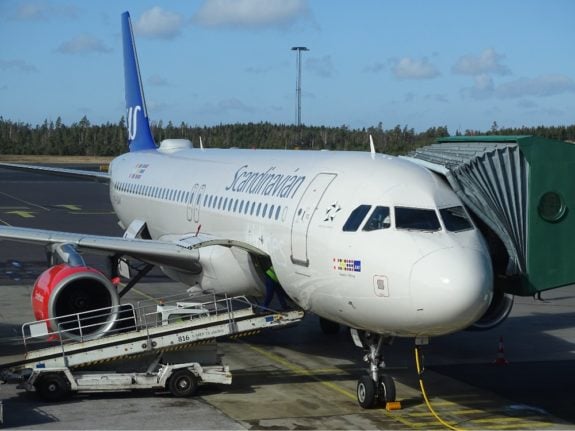Danish newspaper Berlingske cited multiple unnamed sources in a report late on Tuesday, saying plans for a delisting of the company were so far gone that it would be “very surprising” if it were still on a stock exchange by the autumn.
That would leave the airline under the ownership of US capital fund Apollo and the Danish state, with 70 and 30 percent stakes respectively, the newspaper said.
Apollo lent the company $700 million last year, in a deal which would also allow it to convert the company’s debt into shares.
SAS is primarily listed on the Stockholm Stock Exchange, and also appears on exchanges in Oslo and Copenhagen. If delisted, the Swedish state — which like the Danish state currently owns 21.8 percent of the company — would exit as an owner, having previously indicated that it did not wish to reinvest.
In the wake of the media report, shares on the Stockholm Stock Exchange dropped from 0.35 kronor to a low of 0.24 kronor.
Commenting on the article, SAS said it had “initiated a process to raise capital,” as part of its restructuring process.
“We do not want to speculate on the outcome of the capital raising process and it is currently not possible to know whether the investors who ultimately invest in SAS prefer a listed or unlisted company,” Anna Sandell, the head of media relations at SAS, told AFP in an email.
In February, the crisis-hit airline posted a net loss of 2.7 billion kronor ($260 million) from November to January, despite a boost in passenger numbers. SAS filed for Chapter 11 bankruptcy proceedings in the United States in July last year — a move allowing a company to restructure its debts under court supervision.
The airline has said it hopes to complete the process by the “second half of 2023,” and projected that it would see positive earnings before taxes by its 2024 fiscal year. According to its latest quarterly report, SAS employs about 7,500 people, mainly in Denmark, Sweden and Norway.



 Please whitelist us to continue reading.
Please whitelist us to continue reading.
Member comments